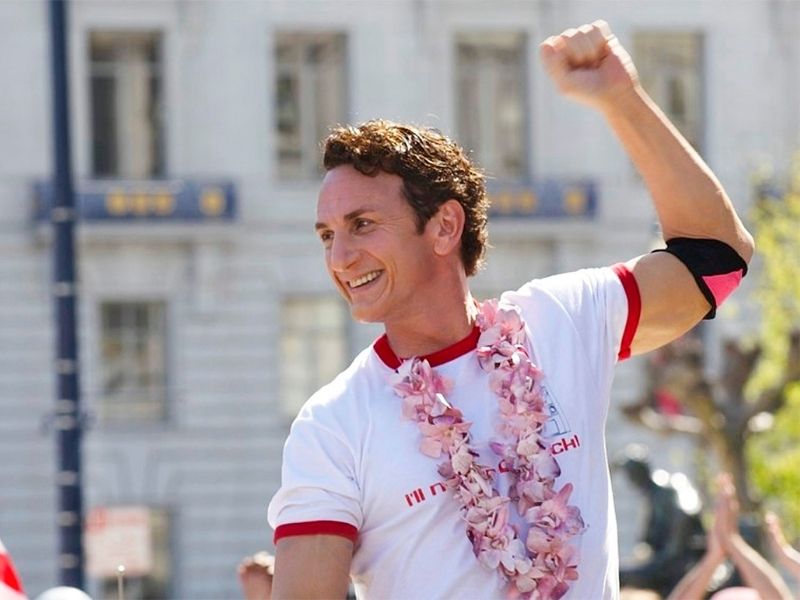The LGBTQ+ community have withstood all the storms that have tried to wear them down. From verbal abuse to physical assault and social exclusion, the community has managed to stand tall despite heartbreaking events, including the Stonewall riots, that led June to be declared as the Pride month when love will be celebrated in its rawest and most vulnerable form.
Hollywood has tried its level best to rival international cinema in their love and support for homosexuality. However, the blatant homophobia and entrenched heteronormativity have stood in the way of a film like Brokeback Mountain winning the Best Picture Award; Moonlight, however, avenged its predecessor years later, making history.
Netflix has been a pretty accepting platform who believes in inclusivity, representation and diversity. Recently, their coming-of-age queer romance series Heartstopper, based on Alice Oseman’s graphic novel, received a rare 100 per cent rating on Rotten Tomatoes; people lauded the streaming giant and many even wished they had this show when they were younger as it helps start healthy and insightful conversations about gender and identity politics as well as sexuality.
While Netflix, unfortunately, does not house films like Happy Together, Portrait of a Lady on Fire, My Beautiful Launderette etc., which are all groundbreaking queer films, it has an eclectic collection of queer films and series that are poignant and emotionally profound.
Here are five such queer films you can now stream on Netflix to celebrate the beginning of Pride month:
The 5 best queer films to watch now on Netflix
Brokeback Mountain (Ang Lee, 2005)
Set in the picturesque yet fictitious titular location, the film chronicles the lives of two cowboys, Ennis and Jack, who are hired for sheep-herding. After spending some time together, the two men develop a close, intimate relationship but the inherent heteronormativity imposed by society prevents them from being together. Separated by circumstance yet connected by the feelings they harbour for each other, the film has a gut-wrenching, fateful ending for the almost-lovers.
Starring Jake Gyllenhaal and Heath Ledger, the film is an emotional dance of love, denial and loss. Known for its epic beauty and vulnerability, the brilliant chemistry between the leads helps add to the tragic and profound nature of the film. With their feelings repressed, the melancholy atmosphere is made more compelling through the vivid imagery. This 2005 masterpiece is indeed a masterful creation by Ang Lee which changed the course of LGBTQ+ cinema.
Tangerine (Sean Baker, 2015)
Shot using three iPhone 5S smartphones with transgender actors on board, the film breaks down stereotypes regarding cinematography and casting. It revolves around the events of a single Christmas Eve in Hollywood when a transgender sex worker, fresh out of prison, finds out about her boyfriend’s infidelity. Eager to seek revenge, they set out to find the man and his new fling, before embarking on a night of bizarre adventures.
Raw, honest and vulnerable, the film is an honest portrayal of the lives of transgenders and the kind of atrocities they face in form of transphobic slurs and physical violence. Steeped in friendships and betrayal, the film takes the viewers on a euphoric yet poignant ride reeking of the seedy sex trade, love and crystal meth, painting the jarring realities of life.
Eternal Summer (Leste Chen, 2006)
Taiwan is the first Asian territory to vote in favour of same-sex marriages. Celebrating Taiwanese cinema, especially this 2006 queer Taiwanese film will help us understand how society has been quite open to all forms of sexualities and identities. One of the most classic tales of romance, the film has a poetic undertone to it- the characters’ names in Chinese have an astrological significance and show how they are connected with each other.
Based on the experience of love, yearning and rejection of three high school students, the film sees a boy named Jonathan being haplessly in love with his friend Shane. However, the arrival of a new girl causes turbulence in their dynamics and raises various questions in Shane’s mind that lead him to question his emotions, sexuality and friendship.
Milk (Gus Van Sant, 2008)
The film explores the life and career of Harvey Milk, tracing his life from his 40th birthday to his death. Milk openly embraced his sexuality and started a camera shop which became a safe shelter for the gay community. After running for office, Milk went on to become California’s first-ever openly gay official.
Van Sant went on to make a biopic after a decade of arthouse filmmaking. One of his most fascinating films, Milk won Sean Penn an Academy Award for upholding the spirit and energy required to play a man as luminous as Harvey Milk. Talking about why he took up the film, Penn shared, “It was a wonderfully written script with one of the great directors. Of course, I could lay on top of all that, the values that this story and Harvey Milk’s life have, but that would take a long time.”
Pariah (Dee Rees, 2011)
Set in a dysfunctional African American household, the film chronicles the trials and tribulations of stepping out of the closet. Alike is a Black teenager who comes to terms with her sexuality, realising that she is a butch lesbian, after befriending an openly lesbian Laura, much to the chagrin of her orthodox, queerphobic mother. Soon, unable to face resentment and verbal abuse, she leaves home to forge her own destiny.
Alike’s coming-out tale is steeped in raw vulnerability and bittersweet tenderness. Her journey towards self-discovery is daunting but rewarding. Touching upon themes like self-acceptance and self-discovery, the film is a brilliant infusion of platonic friendships, lesbianism, love and emotions.
